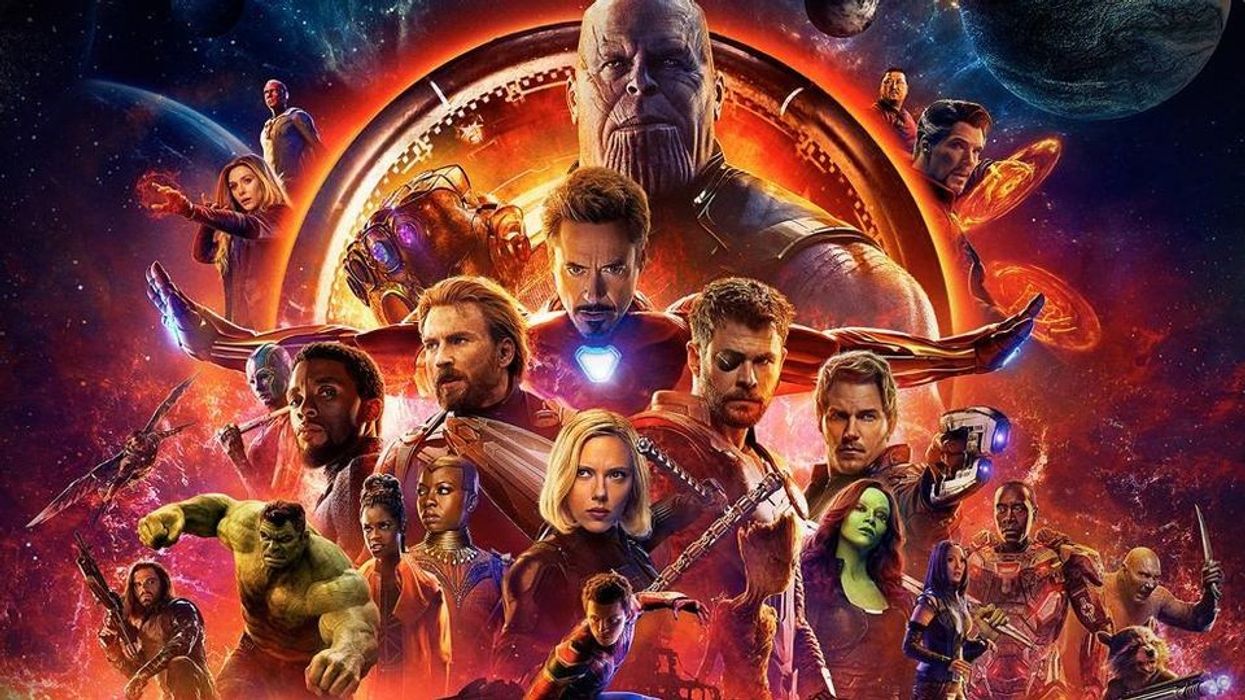The Philosophy of 'The Avengers' According to a Harvard Professor
The Avengers are supposed to be the best of us, but do they reflect the complex morality of humankind?

Earth's mightiest heroes were put together by Nick Fury to protect us from attacks that the Earth's traditional forces could not anticipate. And I'm not talking about the 1.2 billion dollars it made at the box office. Modern comic films were split when DC went gritty, and Marvel stayed hopeful. That's panned out in Marvel's favor at the box office, but it's also led to a lot of people calling these movies soft.
I don't agree with that.
I've always found the Marvel movies ask big questions. Questions that transcend their story and reflect on our modern times.
Today I want to talk about the moral complexities of the Marvel universe and how it affects the heroes at the center of the story. They lack communication, focus on egos, and have sophisticated moral outlooks that don't necessarily mesh. But don't take it from me, check out the full interview with Chris Robichaud, Senior Lecturer in Ethics and Public Policy at the Harvard Kennedy School of Government, from Wired!
How do the Avengers reflect on me?
We all exist in a post-9/11 world...and so do our Marvel characters. Without adequately addressing what happened when terrorists attacked New York, Marvel has always talked about how to deal with the eventual rise of evil. In the beginning, it was via the purity of hope that encapsulated Steve Rogers and Captain America.
But as Marvel got deeper into its 22 films, we saw the extreme terror of guerrilla tacts used in Iron Man 3 to blow up random people all over the world. These events echoed the world we lived in, not just the characters. And when Age of Ultron happened, we saw the real power they wielded caused a ton of human casualties.
At that moment it felt like Marvel grew up. And so did its audience. It also asked the crucial first question of the franchise:
To what extent should safety and security trump individual privacy?
That seems like a CNN headline, but it's the thesis for Civil War.
Once Iron Man and Captain America drew sides everyone had to fight. Sure, the violence seems inconsequential. But they were fighting for the soul of the movies. And it looks like no one won. Marvel, for the first time, ended on a cynical note.
Can we rely on the government to be our hero or do we need an overseeing body?
At the heart of Steve Rogers' anger is the idea that the government has gotten so corrupt since he was a hero. We find out in Winter Soldier; this is because the government is truly evil. It is run by Hydra. But you get the sense once that happens Steve never forgets. This is on the macro level once Thanos enters the mix. Thanos' whole schpiel is that only death is truly our judge. Thanos wants to be that overseeing body, which goes against Cap's struggle for freedom. And Ultimately. I think, s what heals Cap and Tony's feud. Once Tony has to look at the universe, the view from space changes what he thinks about freedom and individuality.
So then, what sacrifices do these heroes make?
How much of ourselves should we give up for the greater good?
If you haven't seen Endgame yet, SPOILERS BELOW!
While DC already killed Superman for its cause, they brought him back to help out too.
Death in Marvel has always had permanence.
To be a hero means the willingness to give up your life. Even if you have a pretty great one, that's what it said for Tony Stark. He died using the stones so that everyone might live. Cap was willing to die, but Tony's sacrifice meant that Cap got to go back and to live. We know Peggy eventually dies, but Cap also knows it's worth going back to have time together even if he outlives her.
This poetic maneuver lets us see Captain America give up defending us to have a life. A life he deserves. He's still a hero, but even a hero is allowed to stop fighting for love.
This is a complex issue. While I loved seeing him settle down, I also thought about how many struggles the Avengers have moving forward, and how scary it must be not to have their fearless leader. I thought about Bucky, a guy Cap sacrificed everything to save, and how he was willing to leave that friendship behind to pursue the love of his life.
These are morally complex questions and scenarios. To be a hero, Cap had to let the other heroes step up. Bucky, to love his friend, had to be okay that he left him in an uncertain future.
What did you think about Endgame? The moral complexity, death, and sacrifices?
Let us know in the comments.
What's next? Read an analysis of Clockwork Orange!
Does the composition of Stanley Kubrick's ultraviolent masterpiece A Clockwork Orange have a secret meaning? Audiences interact with movies in complex ways. Film theorists can speculate about a director's intent just by looking at how scenes are blocked and constructed, drawing meaning from small details that could have more profound significance.
Click the link and find your theories!
Source: Wired












